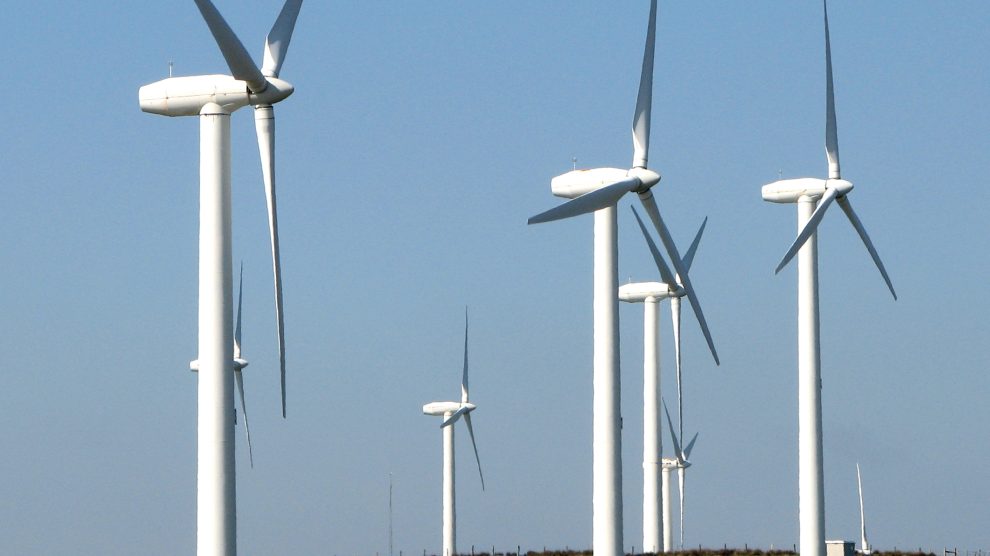To achieve its energy transformation, Serbia requires continued and increased investment from more key players from around the world—across financial institutions and government and the private sector.
In recent years, Serbia has emerged as one of Europe’s most promising emerging markets for clean energy deployment. With its strategic location and growing commitment to sustainability, Serbia has positioned itself as a key player in the region’s energy transition.
As global leaders from the renewable energy industry recently gathered in Serbia for the RES Serbia conference, it served as strong recognition that Serbia’s role in shaping the future of Europe’s energy landscape is starting to gain traction.
- Serbia eyes role as hub of Europe’s EV sector
- Western Balkans can bypass gas, with solar and wind powering a clean energy transition
- Economy in focus: Serbia
Given its proximity to important energy markets, the EU’s growing emphasis on decarbonisation, and untapped renewable energy resources, Serbia has the potential to become a net exporter of clean energy, providing the region with competitively priced, clean energy, while at the same time diversifying its own energy mix and ensuring its energy security.
In fact, Serbia is already a leading exporter of electricity to its neighbouring countries of Croatia, Hungary, North Macedonia, Montenegro and Romania. The Observatory of Economic Complexity (OEC), places electricity as Serbia’s third most exported product, generating nearly one billion US dollars in trade revenue for the country. The continued decarbonisation of Serbia’s electricity system will have knock-on effects for the broader region, helping to power Europe’s energy transition.
This is a realisation that Masdar—a global clean energy powerhouse and one of Serbia’s major renewable energy partners—had early on. In fact, Masdar has been with Serbia on its clean energy journey since the very beginning.
Over a decade ago, Masdar set out to develop the largest utility-scale commercial wind project in Serbia and the Western Balkans, the 158 MW Čibuk I wind farm. Today, Čibuk I provides clean energy to more than 100,000 homes, and it has served as a green print for success for renewable energy projects in Serbia.
Čibuk II
This week marks another significant milestone in Serbia’s renewable energy journey as Masdar announces the financial close of Čibuk II, a 154 MW wind farm that will build on the success of its predecessor. With Čibuk II, Masdar is doubling down on its commitment to Serbia’s energy transition.
Together, these projects bring Masdar’s total investment commitments in Serbia to over half a billion euros and represent over 300 MW of clean energy capacity. Collectively, by 2026 when Čibuk II enters its operations phase, they will provide electricity to 175,000 homes and displace more than 681,000 tonnes of carbon dioxide annually.
The successful financing of Čibuk II—secured from UniCredit and Erste Bank—is also a testament to strong investor confidence in Serbia’s clean energy potential. These projects are crucial value creators for the local economy: creating new high-value jobs in Serbia, improving local infrastructure, and attracting further investment in the country’s clean energy sector.
During its construction, Čibuk I created 400 local jobs and delivered 50 kilometres of new roads, many of which today connect the local areas to the capital and other key cities in the region. We anticipate that Čibuk II will have an even greater impact.
Most importantly, the Čibuk projects underscore the significant opportunity that exists in Serbia to drive the energy transition forward. They are a bold statement of intent – an affirmation of Serbia’s ambition to lead the region in clean energy adoption and an indicator of the growing economic ties between Serbia and the UAE.
Beyond Serbia
The significance of these projects also extends beyond Serbia’s borders. As countries across the Western Balkans strive to reduce their reliance on domestic coal and fossil fuel imports, as well as align with EU environmental targets, projects of this scale serve as beacons of hope for a more sustainable future for the region.
They demonstrate the viability and benefits of large-scale renewable energy investments in the Western Balkans and enable countries across the region to transition toward a low-carbon future, reducing carbon emissions, improving energy security, and creating local jobs.
However, these projects are just the beginning. With the urgent need to tackle climate change, a radical transformation of the energy system towards greater adoption of clean energy could generate significant momentum in the Serbian economy, securing the country’s energy independence and security, and creating thousands of new jobs—all while reducing the country’s carbon footprint.
That is why Masdar remains committed to continuing to work with Serbia on its clean energy journey, building on the success of these projects.
To achieve its energy transformation, Serbia requires continued and increased investment from more key players from around the world—across financial institutions and government and the private sector. A shift away from coal, combined with greater investment in wind, solar, and other renewables, is essential for the country to meet its energy goals and align with its ambition to join the EU in the near future, a process that requires the county to embrace the bloc’s net zero and decarbonisation targets.
With adequate financial and technical backing, Serbia has the right tools in its arsenal to secure a prosperous and sustainable future for itself and for Europe. As Serbia continues on that path, Masdar will be with it every step of the way.
Unlike many news and information platforms, Emerging Europe is free to read, and always will be. There is no paywall here. We are independent, not affiliated with nor representing any political party or business organisation. We want the very best for emerging Europe, nothing more, nothing less. Your support will help us continue to spread the word about this amazing region.
You can contribute here. Thank you.


